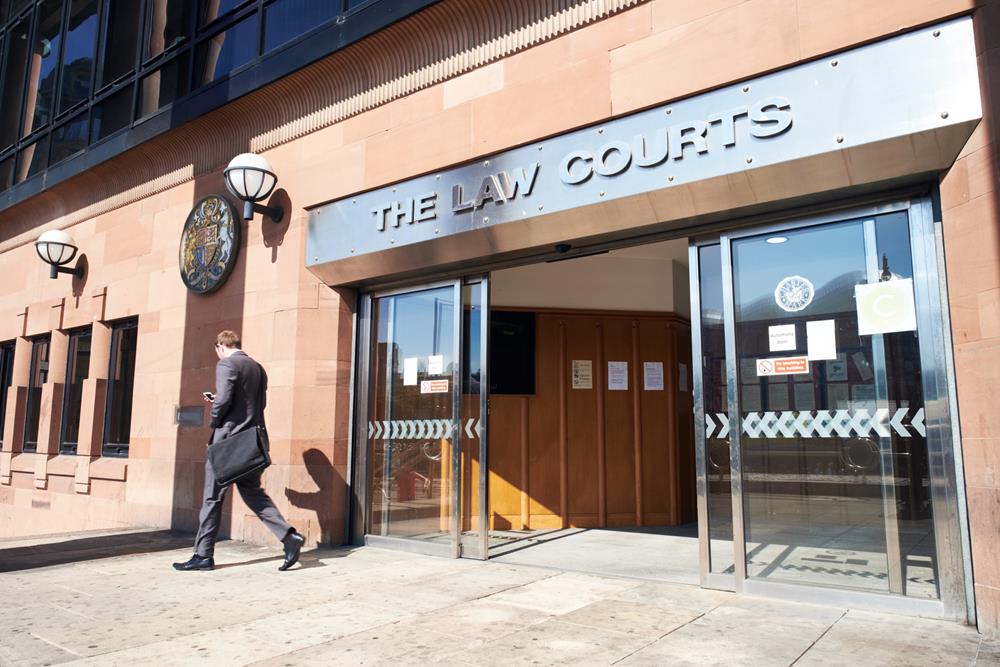Courts and COVID-19 – case review

The courts have tried to take a business as usual approach in progressing court proceedings during COVID-19, to ensure that disputes can be resolved as quickly as possible.
Remote working
The courts have made it clear that COVID-19 does not prevent adjudication, mediation and Technology and Construction Court (TCC) cases from proceeding. They can be dealt with through remote hearings, and by the use of technology.
MillChris Developments Ltd v Waters [2020] 4 WLUK 45
The contractor (MillChris) applied for an interim injunction to prohibit the employer (Waters) from proceeding with an adjudication to determine a construction dispute. MillChris argued that there would be a breach of the rules of natural justice if the adjudication was allowed to continue because of the COVID-19 lockdown.
The judge did not agree with MillChris’s argument, as there were simple ways in which adjudication papers could be prepared despite the contractor and its solicitors being forced to work from home in the lockdown. The injunction was rejected.
Furthermore, the judge considered that the contractor's argument of a lack of time to obtain evidence did not stand, as the failure to obtain evidence was not down to down to the outbreak of COVID-19, but rather a failure to contact the project manager, and a difficulty communicating with the former managing director irrespective of Covid-19.
The adjudicator had also proposed a two-week extension which should be sufficient to overcome any Covid-19 related delays.
Insolvency and adjudication
The courts have also confirmed that construction disputes can be referred by insolvent parties to adjudication.
Bresco Electrical Services Ltd v Michael J Lonsdale (Electrical) Ltd [2020] UKSC 25 (17 June 2020)
In 2018, an injunction was granted to Michael J Lonsdale to prevent an insolvent company, Bresco, from referring a dispute to adjudication under a construction contract.
The statutory right, under the Construction Act, gives a party to a construction contract the right to refer a dispute to adjudication ‘at any time’. The courts deemed that adjudication by an insolvent party would be futile.
In June of this year, the Supreme Court heard the appeal from Bresco, and set aside the injunction allowing the dispute to be referred to adjudication. The Supreme Court ruled that adjudication is a contractual and statutory right that is intended to provide both a summary order for payment and a quick and cost-effective dispute resolution procedure.
In the case of insolvencies, it is a liquidator’s responsibility to determine and, if possible, recover any sums due to a company under insolvency rules, for which the right to adjudicate should remain an option.
To enforce or not to enforce?
Whilst the courts seek to keep proceedings and referrals to adjudication going as much as possible, they will not enforce adjudicators’ decisions at any cost. Here are a couple of examples:
Lane End Developments Construction Ltd v Kingstone Civil Engineering Ltd [2020] EWHC 2338 (TCC)
The case related to a claim by Kingstone, a sub-contractor engaged to carry out enabling works on a housing development, and Lane End, the main contractor, for an unpaid interim payment application of c£356k.
There was no express provision in the sub-contract for disputes to be referred to adjudication. The provisions of the Construction Act 1996 therefore applied and, as such, any adjudication arising out of the sub-contract was to be conducted in accordance with the provisions of the scheme for Construction Contracts (England & Wales) Regulations 1998 (the Scheme).
When Lane End failed to serve a pay less notice and a payment notice in the time allowed by the scheme, Kingstone submitted a request by email to the RICS requesting the appointment of an adjudicator.
In a meeting later the same day Kingstone served a `Notice of Referral' which the parties later agreed would amount to a Notice of Adjudication.
The adjudicator concluded that Kingstone was entitled to the full amount of its claim. However, Lane End challenged the decision on the grounds the adjudicator had been invalidly appointed under the scheme because it requires that a party referring a dispute to adjudication must first give notice of its intention to seek adjudication, and only once such notice has been given, may it request an adjudicator.
The judge agreed. Kingstone's failure to give notice of adjudication prior to attempting to secure an adjudicator's appointment was fatal to its claim.
This is a stark reminder how important it is to carefully consider contractual terms and to strictly comply with the Construction Act 1996 and, where applicable, the Scheme for Construction Contracts (England & Wales) Regulations 1998, when pursuing remedies under construction contracts.
Not following the correct procedures could prejudice your rights and result in delay and extra cost in recovering your loss.
John Doyle Construction Ltd (In Liquidation) v Erith Contractors Limited [2020] EWHC 2451 (TCC)
John Doyle Construction referred a £4m claim relating to works carried out on the Olympic Park in London in 2012 to adjudication and was awarded £1.2m in 2018, for which it applied to the Technology and Construction Court (TCC) to enforce. At the time of seeking to enforce the award, John Doyle Construction was insolvent.
The TCC considered the question of enforcing an adjudicator’s decision in favour of an insolvent company.
The TCC declined to enforce the decision in favour of John Doyle Construction and set out a number of new principles which must be considered in cases seeking to enforce an adjudication decision in favour of an insolvent party.
The principles as a whole make it difficult for an insolvent party to enforce an adjudicator’s decision that will leave the paying party without security for a potential cross claim, i.e. should final determination of the dispute ultimately be found in favour of the paying party; and, where the decision in question does not represent the whole financial dealings under the construction contract between the parties.
For more specialist legal advice please get in touch with Lucilla Waugh on 0191 211 7984 or email [email protected]
